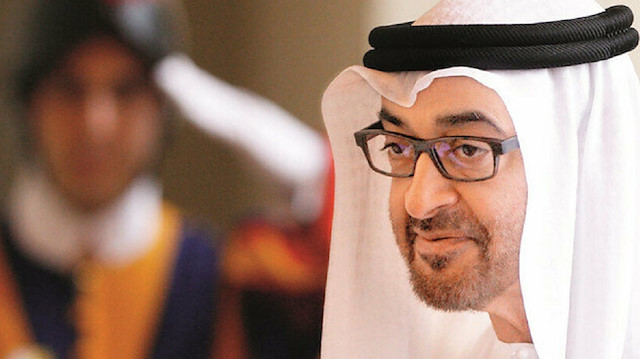
The report states that 50 percent of Haftar forces are made up from mercenaries that were brought in from Sudan aboard Emirati planes
UAE Crown Prince Mohammad bin Zayed has been flying Sudanese mercenaries to fight for East Libya Commander Khalifa Haftar on private planes, according to a bombshell report.
The report, published by the former UN Special Rapporteur Richard Falk-fronted Euro-Med Human Rights Monitor (Euro-Med), cites documents and testimonies obtained by the watchdog.
According to the report released on Dec. 25, Sudanese terrorists are said to be flown from Geneina Airport on Libya-bound jets, receiving a monthly salary of 1,000 Sudanese Pounds (approx. $22).
The report goes on to state that 50 percent of Haftar forces are made up from mercenaries that were brought in from Sudan aboard Emirati planes.
The Euro-Med Monitor said that the “UAE sending Sudanese mercenaries and mercenaries of other nationalities is ‘a disgraceful act that calls for accountability,’” calling on the UN Committee of Experts to work on investigating the crimes committed in Libya and “identifying the international parties’ responsibility in the conflict, which would pave the road for bringing those involved to justice,” the report concluded.
“The UAE Embassy in Khartoum had sent a letter in May 2019 to the Ministry of Foreign Affairs in the Republic of Sudan, requesting diplomatic permission for two C130 + G17 planes belonging to the UAE Armed Forces to land at Geneina Airport to the west of Sudan, to transfer members of the Sudanese forces, which makes the UAE the direct responsible for violations committed by those forces in Libya,” the report read.
On April 4, Haftar -- leader of the eastern Libyan forces -- launched an offensive to capture Tripoli which the GNA responded to with the Burkan al-Ghadab operation.
According to UN data, over a thousand people have been killed since the start of the operation and more than 5,000 injured.
Since the ouster and death of ruler Muammar Gaddafi in 2011, two seats of power have emerged in Libya: one in eastern Libya supported mainly by Egypt and the United Arab Emirates and another in Tripoli, which enjoys UN and international recognition.


